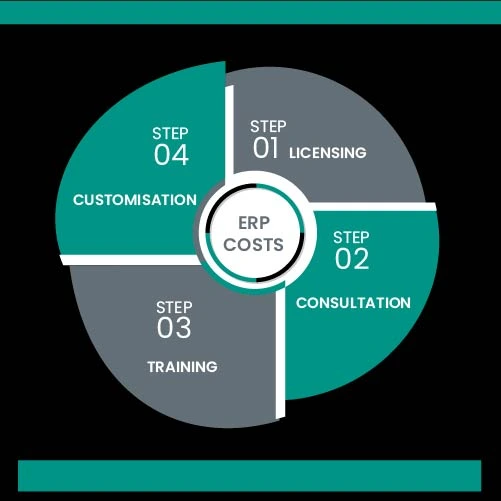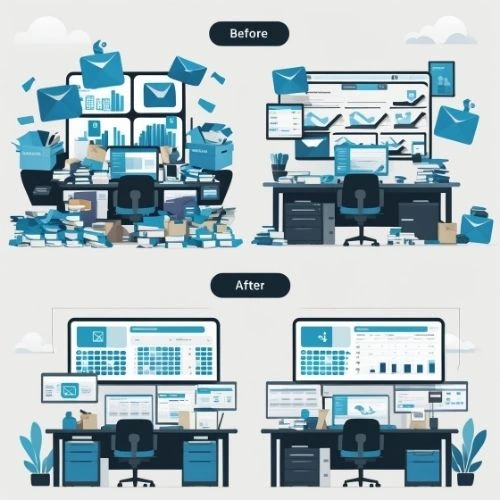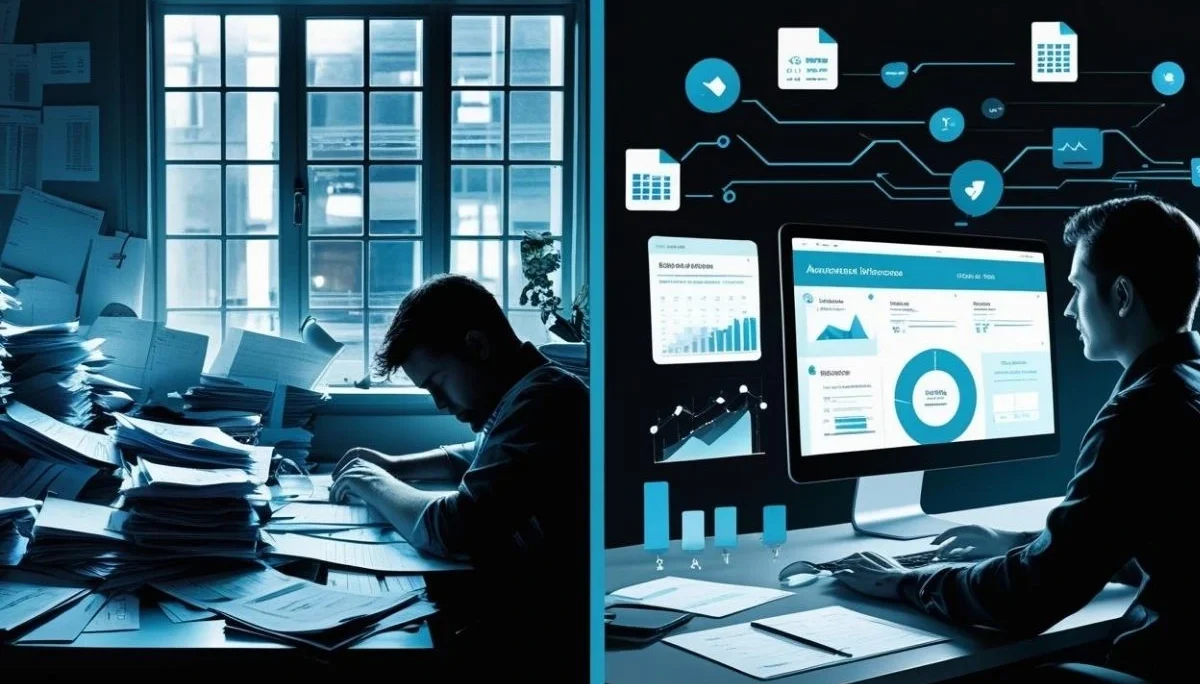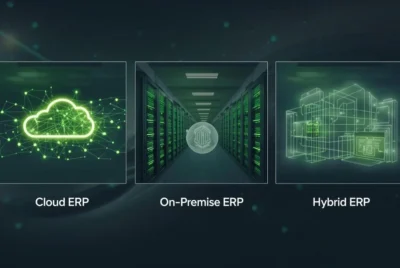Small businesses are the backbone of every thriving economy; however, managing operations, inventory, finance, and customer relationships efficiently can be overwhelming. As these businesses grow to a certain size they are faced with a major decision: to invest in an Enterprise Resource Planning (ERP) system.
ERP systems promise streamlined workflows, real-time insights, and reduced manual tasks. However, for SMEs, implementing one is a significant investment — both financially and operationally. In this article, we’ll therefore break down the true costs and measurable benefits of ERP implementation for small businesses, ultimately helping you decide if it’s the right step for your company.
Why ERP Systems Matter for Small Businesses
Moreover, SMEs usually have to work under shoestring budgets with lean teams, as compared to large corporations. Data silos, lack of communication and manual processes are a fast path to stalling. The ERP software comes in there.
ERP for small businesses integrates core business functions — finance, inventory, HR, CRM, and more — into one central platform. It removes double entries, advances communication and gives real-time visibility, which provides small business owners with the clarity that makes a better quality of the decision-making.
In fact, 95 percent of companies claim that their processes have been enhanced following the implementation of ERP.
Source: softwareconnect.com)
Knowledge about Costs of ERP Implementation

ERP implementation comes with upfront and ongoing expenses. Here’s a breakdown of what small businesses should expect:
🔹 1. Product & Module Selection
Not all ERP systems are created equal. Some are built for manufacturers, others for retailers or service-based SMEs.
• Core Modules: Finance, Accounting, Inventory, Sales, CRM, Manufacturing
• Optional Add-ons: HR, Payroll, Project Management, etc.
More modules = higher costs. Choose only what aligns with your current needs — though keep scalability in mind.
💡 Tip: Start with essential modules and expand as your business grows.
🔹 2. Licencing, Consultation & Customisation
• Licencing: Some ERPs are open-source (free) but require more internal IT resources. Others charge per user/month or offer lifetime licences.
• Consultation: ERP vendors tend to carry out a business audit to know your needs. In most cases this is a service which is remunerated.
• Customisation: Each business is different. ERP systems become expensive because businesses must customise them during implementation.
Concealed Expenditure: The use of cloud hosting or a self-hosted server framework might have a major impact on overall investment.
🔹 3. Training and Continuing Maintenance
• Train teams to handle the system effectively. Provide training either on-site or virtually, charging hourly or per session.
• Support & Updates: After implementation, the team will need to provide frequent updates, fix bugs, and offer technical support to ensure the system runs smoothly.
The Advantages of ERP to SMEs
Although the costs involved may be high, the returns provided by ERP may prove to be transformational towards the small business. This is the formula of ERP:

Data and Efficiency in Processes Centralised
An ERP system centralises all your data — from orders to inventory to payroll — into one dashboard. This reduces manual input, streamlines operations, and eliminates silos between departments.
📊 Result: Faster workflows, reduced human errors, and better communication across teams.
✅ Real-Time Insights & Smarter Decisions
ERP systems offer real-time reporting and dashboards. As a result, this empowers business owners to track progress, measure KPIs, and ultimately make fast, data-driven decisions — especially during emergencies or sudden market shifts.
📈 95% of startups are already using or planning to adopt industry-specific ERP systems.
(Source: cybrosys.com)
✅ Cost Savings & Reduced Waste
As a result of better forecasting, improved inventory control, and fewer manual errors, ERPs help small businesses significantly cut operational costs.
ERP systems reduce operational costs by 23 per cent.
Learn 2G channelled their energy toward creating, exploring, discovering, as well as producing.
Improved Customer Relationship Management (CRM)
Most modern ERPs may incorporate in them CRM modules so that businesses:
- Keep up with customer orders and preferences.
- Personalise communication and tailor interactions.
- Enhance response times.
- Increase customer loyalty and satisfaction.
🤝 A satisfied customer is a returning customer. ERP helps make that possible.
✅ Competitive Edge in the Market
By improving productivity, data transparency, and collaboration, ERP allows small businesses to compete with larger enterprises — and often outmanoeuvre them through agility.
Final Thoughts: Is ERP Worth the Investment?
Absolutely — if chosen and implemented correctly.
ERP implementation isn’t a one-size-fits-all decision. But when tailored to your business’s unique needs, it can drive massive improvements in efficiency, cost control, and growth. Most small businesses recover their ERP investment within 2–3 years.





